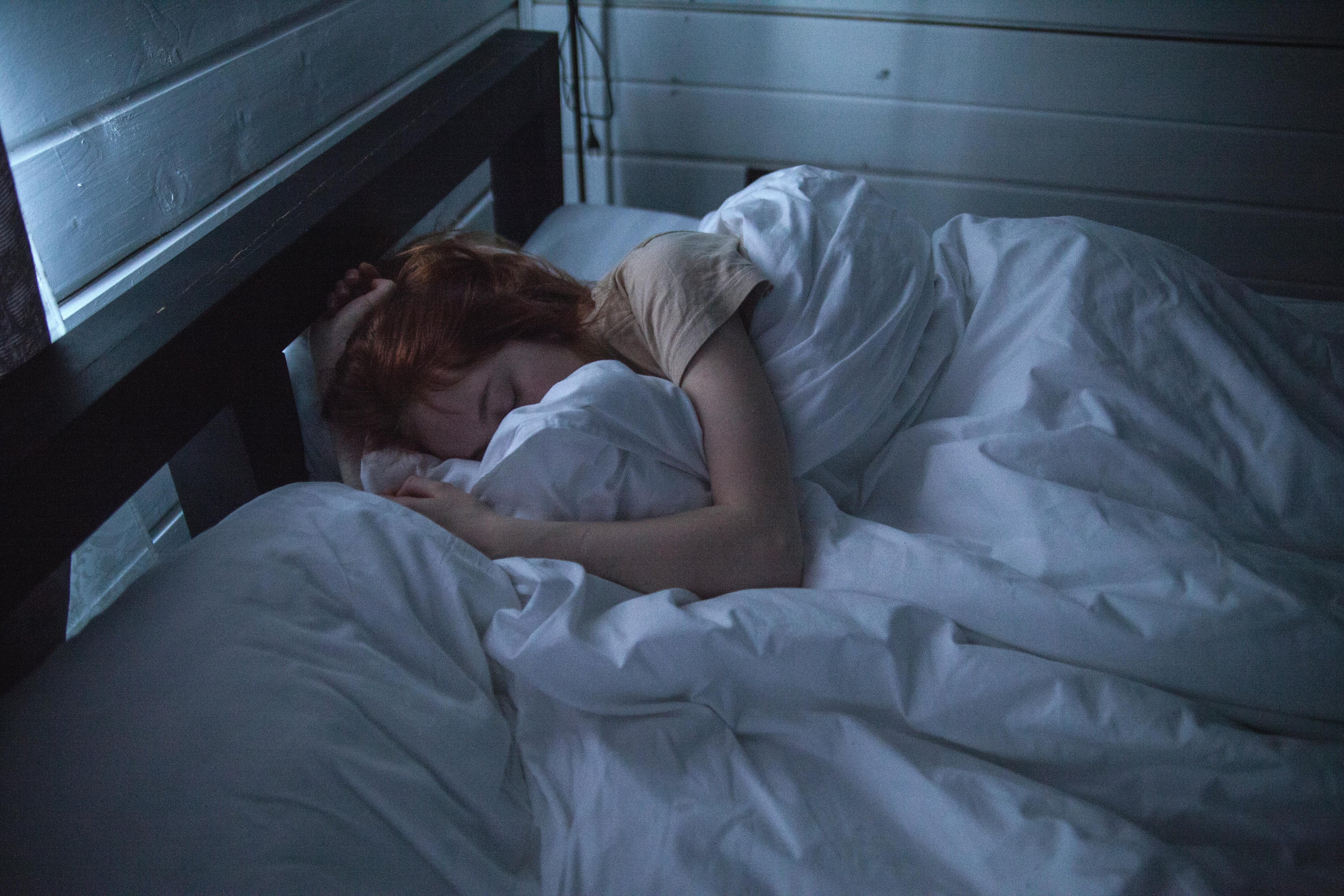You crawl into bed, exhausted, hoping for a good night’s sleep. But within minutes, you’re either too hot, too restless, or wide awake with a racing mind. You toss, turn, check the clock, and before you know it, morning has arrived, leaving you just as tired as the day before.
If you’re going through menopause, this cycle can feel endless. Hormonal shifts, night sweats, and increased stress make it harder to fall asleep and stay asleep. The good news? A well-structured night time routine can help reset your body’s natural sleep cycle, reduce night sweats, and calm your mind before bed.
In this article, you’ll learn:
- Why a consistent bedtime routine is key for better sleep during menopause
- A step-by-step evening ritual to help you relax and fall asleep faster
- What to avoid before bed to prevent night sweats and wake-ups
- How to get back to sleep quickly if you wake up in the middle of the night
By making a few small but powerful changes, you can start getting the restful, uninterrupted sleep your body needs. Let’s dive in.
Why a Night Time Routine Matters for Menopausal Sleep

A good night's sleep doesn’t start when your head hits the pillow, it starts hours before. Your body relies on consistent signals to wind down, produce sleep hormones, and regulate temperature. During menopause, these processes become disrupted, making a structured bedtime routine even more important.
How Hormones Impact Sleep
As estrogen and progesterone levels drop, they trigger several changes that interfere with rest:
- Lower melatonin production makes it harder to fall asleep.
- Increased cortisol (the stress hormone) leads to racing thoughts and wake-ups.
- Body temperature fluctuations cause night sweats and discomfort.
A nighttime routine helps counteract these effects by lowering stress, cooling the body, and reinforcing a regular sleep schedule.
Why Consistency is Key
Your body thrives on routine. Going to bed and waking up at the same time every day strengthens your internal clock, making it easier to fall asleep naturally. Even small, consistent habits before bed can train your brain to expect rest, leading to deeper, more restorative sleep.
Now that you know why a routine matters, let’s go step by step through an evening ritual designed specifically for better sleep during menopause.
Step-by-Step Nighttime Routine for Better Sleep
A well-structured bedtime routine doesn’t have to be complicated. The key is creating a series of calming habits that signal to your body that it’s time to unwind. Follow these steps to set yourself up for deep, restful sleep.
1. Start Winding Down 1 to 2 Hours Before Bed
Your body needs time to shift from the busyness of the day to a state of relaxation. Start slowing things down at least an hour before bed by:
- Dimming the lights to encourage natural melatonin production.
- Turning off stimulating devices like your phone, laptop, or TV. Blue light from screens suppresses melatonin and can make it harder to fall asleep.
- Switching to soft, calming activities like reading, listening to gentle music, or doing light stretching.
2. Take a Warm Bath or Shower
A warm bath or shower before bed helps in two ways:
- It relaxes your muscles and relieves tension.
- The drop in body temperature after you step out signals to your brain that it’s time for sleep.
For added relaxation, try adding Epsom salts or a few drops of lavender essential oil to your bath.
3. Support Your Body with the Right Nighttime Drink
What you drink before bed can either help or hurt your sleep. Choose a soothing option like:
- Chamomile tea – Naturally calming and helps reduce stress.
- Warm almond or oat milk – Rich in magnesium, which supports relaxation.
- Valerian root or passionflower tea – Known for their mild sedative effects.
Avoid caffeine, alcohol, and sugary drinks, as they can increase wakefulness and night sweats.
4. Keep Your Bedroom Cool and Comfortable
Since menopause can cause hot flashes and night sweats, setting up the right sleep environment is crucial:
- Keep your bedroom between 16-18°C (60-65°F) for optimal sleep.
- Use breathable, moisture-wicking bedding like cotton or bamboo sheets.
- Consider a cooling pillow or fan to help regulate temperature.
5. Try Relaxation Techniques Before Bed
A calm mind leads to better sleep. Before bed, try:
- Deep breathing exercises – The 4-7-8 method (inhale for 4 seconds, hold for 7, exhale for 8) can help slow your heart rate.
- Progressive muscle relaxation – Tense and release different muscle groups to ease tension.
- Guided meditation or sleep stories – Apps like Calm or Insight Timer offer bedtime meditations designed to help you fall asleep.
What to Avoid Before Bed
Just as the right habits can set you up for better sleep, the wrong ones can keep you tossing and turning. Certain foods, drinks, and activities can trigger night sweats, increase restlessness, and disrupt your sleep cycle. Here’s what to steer clear of in the evening.
1. Heavy Meals and Sugary Snacks
Eating too close to bedtime can make it harder to sleep, especially if the meal is heavy, spicy, or high in sugar. These foods can:
- Increase body temperature, making night sweats worse.
- Cause digestive discomfort, leading to bloating or acid reflux.
- Spike blood sugar, followed by a crash that can wake you up in the middle of the night.
What to do instead: If you're hungry before bed, opt for a light snack like a handful of almonds, a banana, or a small bowl of oatmeal—foods that support relaxation.
2. Caffeine and Alcohol
Both caffeine and alcohol can interfere with sleep quality in different ways:
- Caffeine (coffee, tea, chocolate, soft drinks) stays in your system for hours, making it harder to fall asleep.
- Alcohol may help you fall asleep faster but disrupts deep sleep and can worsen night sweats.
What to do instead: Switch to herbal teas or warm non-caffeinated drinks in the evening to support relaxation.
3. Too Much Screen Time
Phones, tablets, and TVs emit blue light, which suppresses melatonin production and keeps your brain alert. Scrolling through social media or watching intense shows before bed can increase stress and make it harder to unwind.
What to do instead: Turn off screens at least an hour before bed and replace them with relaxing activities like reading, journaling, or listening to calming music.
4. Intense Exercise Too Close to Bedtime
Exercise is great for sleep, but vigorous workouts right before bed can increase adrenaline and body temperature, making it harder to relax.
What to do instead: If you want to move in the evening, try gentle stretching, yoga, or a short walk instead of high-intensity workouts.
What to Do If You Wake Up at Night

Even with the best bedtime routine, waking up in the middle of the night is common during menopause. Whether it’s due to night sweats, anxiety, or a sudden feeling of restlessness, what you do next can determine whether you fall back asleep quickly or stay awake for hours.
1. Stay Calm and Avoid Checking the Clock
Looking at the time can trigger stress and frustration, making it harder to relax. Thoughts like “It’s 3 AM, and I have to be up in a few hours” create anxiety, which keeps your brain alert.
What to do instead: If you wake up, keep your eyes closed and focus on slow, steady breathing to encourage relaxation.
2. Cool Down If You’re Overheating
Night sweats can leave you feeling hot, sticky, and uncomfortable.
What to do instead:
- Use moisture-wicking bedding to absorb sweat and keep you dry.
- Keep a cool glass of water next to your bed and take small sips if needed.
- Try a cold pack or cooling pillow to regulate body temperature.
3. Try a Sleep Reset if You’re Restless
If you’ve been awake for more than 20 minutes and feel restless, lying in bed tossing and turning can make things worse.
What to do instead:
- Get out of bed and do something calming in dim lighting, like reading a book or listening to soothing music.
- Avoid screens, bright lights, or stimulating activities.
- Once you feel drowsy, go back to bed.
4. Use Relaxation Techniques to Drift Back to Sleep
If anxiety or racing thoughts are keeping you awake, relaxation techniques can help quiet the mind.
Try:
- The 4-7-8 breathing method – Inhale for 4 seconds, hold for 7, exhale for 8.
- Progressive muscle relaxation – Tense and relax each muscle group from your toes to your head.
- Guided meditation or sleep stories – Listening to a calming voice can help shift your focus away from stress.
Your Best Sleep Starts Tonight
Better sleep during menopause isn’t about quick fixes, it’s about building a nighttime routine that works for your body. Small, consistent changes can help you fall asleep faster, stay asleep longer, and wake up feeling refreshed.
Key Takeaways:
- Start winding down early – Dim the lights, avoid screens, and engage in relaxing activities.
- Create a calming bedtime ritual – Try a warm bath, a sleep-friendly drink, or relaxation techniques.
- Set up a sleep-friendly environment – Keep your bedroom cool, use moisture-wicking bedding, and limit disturbances.
- Avoid sleep disruptors – Skip caffeine, alcohol, heavy meals, and intense exercise in the evening.
- Know what to do if you wake up – Stay calm, cool down, and use relaxation techniques to ease back into sleep.
Menopause may bring sleep challenges, but with the right habits, you can regain control over your nights. Start with one or two changes tonight and build from there, better sleep is within reach.

